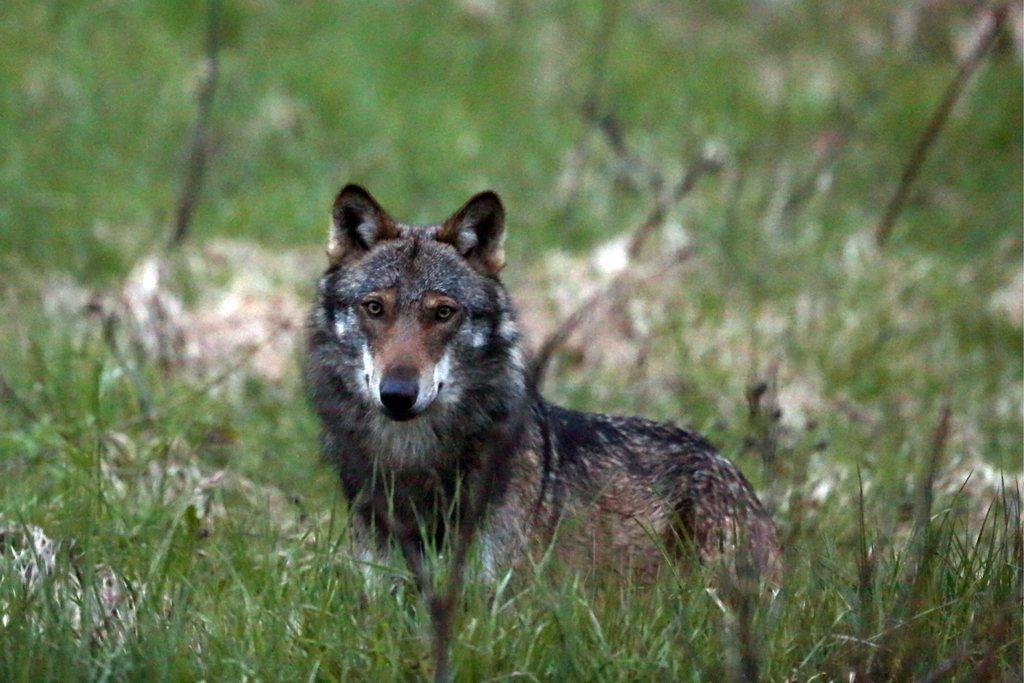
Study questions sense of shooting wolves

Killing wolves doesn’t necessarily save sheep, but rather the opposite, according to an international study. Both the study and the Swiss authorities emphasise the importance of herd protection.
A study published in the latest edition of Frontiers in Ecology and the EnvironmentExternal link reports that wolf shootings can result in more attacks on livestock. The reason is that the culling of wolves leads to disorganised packs and more lone wolves.
“Livestock owners traditionally use various non-lethal and lethal methods to protect their domestic animals from wild predators. However, many of these methods are implemented without first considering experimental evidence of their effectiveness in mitigating predation-related threats or avoiding ecological degradation,” states the studyExternal link.
The researchers evaluated interventions involving canine, feline and ursine predators – mainly in relation to North American and European farms.
“Non-lethal methods were more effective than lethal methods in preventing carnivore predation on livestock generally; at least two lethal methods (government culling or regulated public hunting) were followed by increases in predation on livestock; zero tests of non-lethal methods had counterproductive effects,” found the researchers.
Swiss situation
Switzerland’s lead gamekeeper is unsurprised by the findings, agreeing that if the alpha wolves are shot, it affects the whole pack.
“This causes the most problems. With well-organised packs, there are fewer attacks,” says Reinhard Schnidrig of the Federal Office for the EnvironmentExternal link. However, as he told Swiss public television, SRFExternal link, he doesn’t mean that problem wolves shouldn’t be shot.
“In Switzerland it’s a political mandate to provide for the option of shooting wolves,” Schnidrig says. The study comes just two weeks after the Swiss cabinet announced that it wanted to reform hunting laws – making it easier to cull animals that cause serious damage or threaten humans or other species.
The environment office is in charge of granting hunting permits; the new legislation would allow the cantons to decide whether animals should be shot.
Both Schnidrig and the researchers cited in Frontiers in Ecology and the Environment highlight the importance of herd protection.
“Where wolves roam – whether individually or in packs – there needs to be herd protection. This is the first commandment if you don’t want there to be a lot of dead sheep or other animals,” Schnidrig says.

In compliance with the JTI standards
More: SWI swissinfo.ch certified by the Journalism Trust Initiative

























You can find an overview of ongoing debates with our journalists here . Please join us!
If you want to start a conversation about a topic raised in this article or want to report factual errors, email us at english@swissinfo.ch.